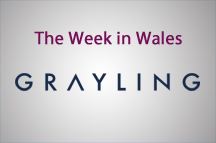Well, that was interesting! After a wild election campaign Wales has spoken once again. What did they say? Let’s look at it party by party…
that was interesting! After a wild election campaign Wales has spoken once again. What did they say? Let’s look at it party by party…
Welsh Labour
Once again Welsh Labour will be delighted with their results. They managed to not only overturn the surprise losses of 2015, but also to regain the prize of Cardiff North – which has alluded them for several elections. With their vote share up by 12.1% they can also claim to have almost half of Wales at their back (with 48.9% of the total vote). Throughout the campaign Welsh Labour chose to forget Jeremy Corbyn and lead on the record of First Minister Carwyn Jones. Whether this helped or not is impossible to prove. What made sense six weeks ago now seems like another world. Either way, previous Corbyn critics like leadership challenger, and Pontypridd MP Owen Smith, with first in line to say he was wrong about Corbyn and wished him every success. This suggests that Corbyn’s leadership from this point on will be both stronger and more stable as the Parliamentary Labour Party look to have no option but to give him their support for the foreseeable future. That said, best remember that the ‘foreseeable future’ is now roughly 11 days.
Welsh Conservatives
The First-Past-The-Post system seems to have cost the Tories this time around with them losing three seats despite increasing their vote share by 6.3% to a strong second place on 33.6%. What is most interesting to note is that all three of their losing MPs were the ones elected in 2015. It seems that over the past two years none of them were able to establish themselves as a positive force in their constituencies. Questions have immediately been placed on the party leadership and where they go from here? We may have to wait sometime to find the result, however, they would struggle to look on the night as a successful night.
Plaid Cymru
Plaid will be delighted to pick up Ceredigion after its loss to the Welsh Liberal Democrats in 2005. However, looking at the bigger picture it’s hard not to get a sense of déjà vu looking at Plaid’s performance. They have this impressive single result (much like they did in the 2016 Assembly election by winning the Rhondda), but across the county they lost ground (1.7%) with a vote share down to 10.4%. What was more shocking is that they ended up coming third in Ynys Mon. Winning both of these seats shouldn’t even be in doubt if Plaid are ever going to be serious about challenging the wider Welsh Labour hegemony. Their larger problem seems to be that the party machine continues not to recognize this and, much like the local government results in May, is spinning hard to make out they had a great night. That suggests there is no sign of change any time soon, something which will please Welsh Labour no end.
Others
Losing Ceredigion means that the removal of the Welsh Liberal Democrats from Westminster is complete. Former MP Mark Williams will have to step aside from his leadership role, which may, ironically enough, find its way back to the leader he replaced just last year – Kirsty Williams AM – given that she is now the only senior figure left in the party and currently sits in Welsh Labour’s Cabinet as Cabinet Secretary for Education in Cardiff Bay. UKIP and the Greens are firmly also rans with just 2.3% between them with the UKIP vote dropping by 11.6%. As such there really isn’t much left to say about them.














